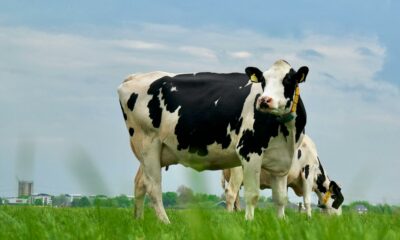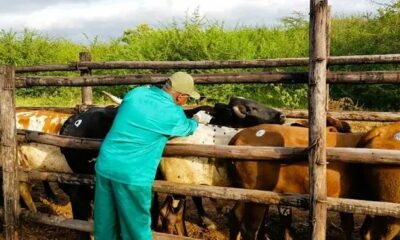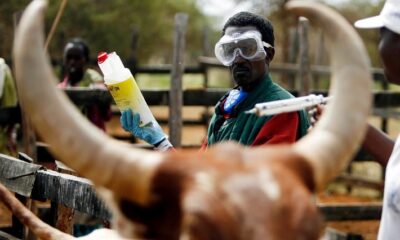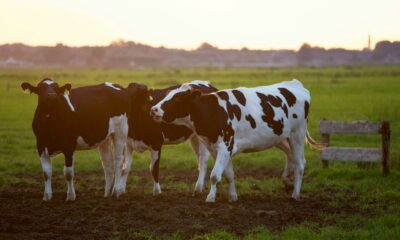News
Foot and Mouth Disease Hits Karan Beef: What It Means for South Africa’s Beef Supply
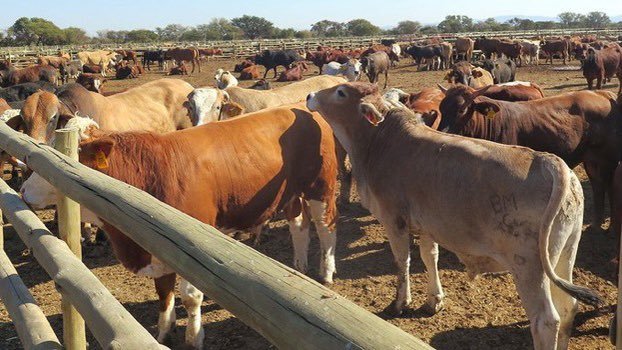
South Africa’s beef industry has just taken a hit—and not a small one. Karan Beef, the country’s biggest beef producer and a cornerstone of our meat supply chain, has confirmed a case of foot and mouth disease (FMD) at its Heidelberg feedlot.
This isn’t just another farm issue. It’s a major event that could ripple through butcheries, supermarkets, and dinner tables nationwide.
When the Giant Stumbles
Karan Beef’s Heidelberg operation is massive. We’re talking about 145,000 cattle on a 2,330-hectare facility—the largest feedlot in Africa. The sheer scale of the business means that when something goes wrong here, the whole industry feels it.
On 30 May 2025, despite all their strict biosecurity practices, FMD was detected. The company didn’t waste time sugar-coating it. They acknowledged the seriousness of the outbreak and emphasized that even the best precautions can’t always hold off nature.
What Is Foot and Mouth Disease, Really?
For those who don’t live and breathe farm life, foot and mouth disease might sound like something from a vet textbook. But it’s a real and very contagious virus that affects animals like cattle, sheep, and pigs.
Infected animals suffer from fever and painful sores in the mouth and on the feet, which makes it hard for them to eat or move. While many survive, their condition after recovery can leave them too weak for commercial farming.
More importantly, FMD spreads like wildfire. One case, if not contained quickly, can put entire farms, provinces, and export deals at risk.
Containment Mode: What Happens Next?
Karan Beef has teamed up with State Veterinary Services to contain the outbreak. While specific next steps haven’t been publicly announced yet, standard responses usually include isolating infected animals, halting movement of livestock, and sometimes even culling—painful but sometimes necessary decisions to save the broader herd.
Disinfection, quarantines, and strict vet inspections are also part of the game plan. Every hour counts when you’re dealing with a disease this contagious.
What This Means for You and Me
Let’s be real: we all feel disruptions like this, whether we’re buying steak for the weekend braai or managing a restaurant supply chain. With Karan Beef playing such a key role in supplying beef across the country, this situation could lead to temporary shortages or price bumps.
It’s too early to know exactly how much of an impact we’ll see. Karan Beef says it will stay transparent and continue to follow the highest health and welfare standards. For now, all we can do is wait for the next update.
A Wake-Up Call for the Livestock Sector
This outbreak is more than just one company’s crisis. It’s a stark reminder of how vulnerable even the best-run agricultural operations can be. The livestock industry walks a tightrope every day, balancing between efficiency, health, and unpredictable natural threats.
If anything, this is a call for stronger disease surveillance systems, more investment in animal health, and maybe a closer look at how we manage such high-density feedlots.
Stay Informed and Support Local Agriculture
In times like these, it’s crucial to stay updated with verified information. Avoid panic-buying or sharing unconfirmed stories. The beef industry is made up of hardworking South Africans doing everything they can to protect our food supply.
If you care about where your food comes from, now’s a good time to show support for your local farmers, butchers, and suppliers who work tirelessly behind the scenes.
{Source: BusinessTech}
Follow Joburg ETC on Facebook, Twitter , TikTok and Instagram
For more News in Johannesburg, visit joburgetc.com



